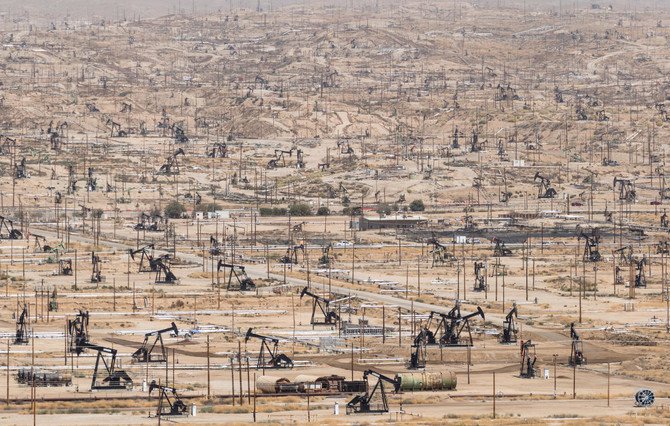Oil prices jump on Saudi and OPEC cuts

Oil prices surged on Tuesday, supported by OPEC-led production cuts, which Saudi Arabia said it would surpass by more than half a million barrels per day (bpd), and by US sanctions against Iran and Venezuela.
Brent crude futures were up almost 3 percent while West Texas Intermediate (WTI) crude oil futures also gained by a similar measure. Markets are tightening because of voluntary production cuts from Jan. 1, led by OPEC and allies including Russia, aimed at forestalling a global overhang.
Saudi Arabia, the world’s top oil exporter and de facto leader of OPEC, said it would reduce crude production to about 9.8 million bpd in March, over half a million bpd more than it had originally pledged. Energy Minister Khalid Al-Falih announced the move in an interview with the Financial Times published on Tuesday as the Kingdom seeks to drive up oil prices to help fund an economic transformation plan.
However, rising US oil production, fighting near Libya’s main oilfield, sanctions on Venezuela and suspense over whether Washington will grant more waivers to import Iranian oil have left markets unsure about broader supply. OPEC cut its forecast for 2019 world oil demand on Tuesday, citing slowing economies and expectations of faster supply growth from rivals, underlining the challenge it faces in preventing a glut. Also on the radar are hopes expressed by US and Chinese officials that a new round of talks, which began in Beijing on Monday, would bring them closer to easing their months-long trade war.
Beijing and Washington are trying to hammer out a deal before a March 1 deadline, without which US tariffs on $200 billion worth of Chinese imports are scheduled to rise to 25 percent from 10 percent. The suspense over the talks continues to affect oil markets.
“Resumption of the US-China trade talks has prompted risk appetite in financial markets, which has also manifested in oil prices gaining strength,” said Abhishek Kumar, senior energy analyst at Interfax Energy in London. “Nevertheless, there needs to be a tangible outcome from the talks for a sustained rally in prices.” But Bank of America warned of a “significant slowing” in global growth, adding that it expects Brent and WTI to average $70 and $59 a barrel respectively in 2019, and $65 and $60 in 2020.
Courtesy : Arab News
